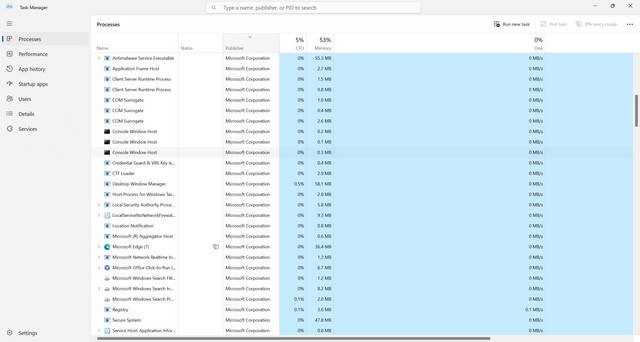If you have ever opened the Windows Task Manager and noticed a process called RtkAudUService64.exe running in the background, you may have wondered what it is and whether or not it is safe to keep on your system. In this article, we will delve into the details of RtkAudUService64.exe, its purpose, and whether or not you should remove it from your computer.

What is RtkAudUService64.exe?
RtkAudUService64.exe is an executable file associated with Realtek High Definition Audio Driver, a software component that enables high-quality audio playback on Windows operating systems. Realtek is a well-known manufacturer of audio hardware and software solutions, and their audio drivers are widely used by many computer manufacturers.
The RtkAudUService64.exe process is responsible for managing audio-related services and processes on your computer. It ensures that your audio devices function properly and provides essential features such as audio enhancements, equalizers, and audio effects.
When you install the Realtek High Definition Audio Driver, RtkAudUService64.exe is automatically added to your system startup to ensure that audio services are always available. It is located in the “C:Program FilesRealtekAudioHDA” directory by default.
Should I Remove RtkAudUService64.exe?
Now that we understand what RtkAudUService64.exe is, let’s address the question of whether or not you should remove it from your computer. The answer depends on your specific needs and circumstances.
Reasons to Keep RtkAudUService64.exe:
- Audio Functionality: If you use your computer for multimedia purposes, such as watching movies, listening to music, or playing games, removing RtkAudUService64.exe may result in a loss of audio functionality. The process is essential for the proper functioning of your audio devices and provides important features and enhancements.
- Compatibility: Many applications and games rely on the Realtek audio drivers to deliver high-quality sound. Removing RtkAudUService64.exe may cause compatibility issues with these applications, resulting in audio-related problems.
- System Stability: The Realtek audio driver and its associated processes are generally stable and well-maintained. Removing RtkAudUService64.exe may disrupt the stability of your system and lead to audio-related errors or crashes.
Reasons to Remove RtkAudUService64.exe:
- Performance Optimization: If you have a low-end or older computer with limited system resources, disabling unnecessary processes like RtkAudUService64.exe can help improve overall system performance. However, keep in mind that the impact on performance may be minimal, and it is recommended to prioritize other optimization techniques.
- Alternative Audio Solutions: If you use external audio devices or have a dedicated sound card that does not rely on Realtek drivers, you may consider removing RtkAudUService64.exe. However, ensure that you have alternative audio drivers or software installed to avoid any loss of audio functionality.
Ultimately, the decision to remove RtkAudUService64.exe should be based on your specific needs and preferences. If you rely on Realtek audio drivers and use your computer for multimedia purposes, it is generally recommended to keep the process running.
Is RtkAudUService64.exe Malware?
Given the prevalence of malware and the potential risks associated with unknown processes, it is natural to question whether RtkAudUService64.exe is malware. However, based on extensive research and user reports, RtkAudUService64.exe is not considered malware.
It is important to note that malware can sometimes disguise itself as legitimate processes to avoid detection. Therefore, if you suspect that RtkAudUService64.exe is behaving suspiciously or causing issues on your system, it is recommended to perform a thorough antivirus scan using a reliable security solution like Malwarebytes Free.
Malwarebytes is a trusted antivirus program that can detect and remove various types of malware, including those that may attempt to impersonate legitimate processes. Running a scan with Malwarebytes can help ensure the security and integrity of your system.
Summary
RtkAudUService64.exe is an essential process associated with Realtek High Definition Audio Driver. It manages audio-related services and provides important features for audio playback on Windows systems. While there may be reasons to remove it for performance optimization or alternative audio solutions, it is generally recommended to keep RtkAudUService64.exe running if you rely on Realtek audio drivers and use your computer for multimedia purposes.
It is important to note that RtkAudUService64.exe is not considered malware. However, if you suspect any malicious activity or encounter issues with the process, it is advisable to perform a thorough antivirus scan using a reliable security solution like Malwarebytes Free.
Ultimately, understanding the purpose and implications of RtkAudUService64.exe allows you to make an informed decision about whether or not to remove it from your computer.




